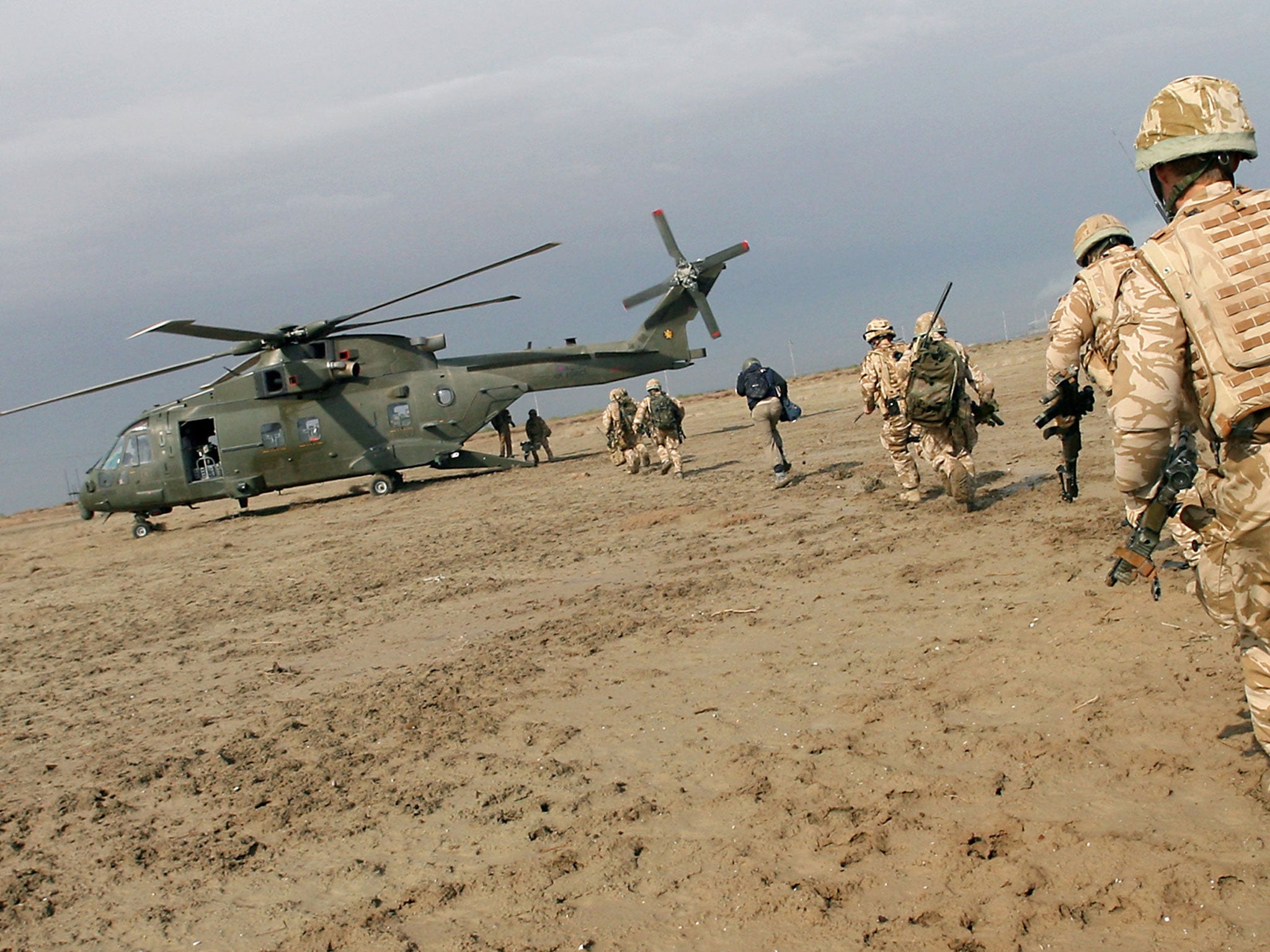Iraq War: Investigating alleged crimes committed by our soldiers is no witch-hunt
The standards we rightly apply to our armed forces serving in the field are universal, and are there for a reason

Your support helps us to tell the story
From reproductive rights to climate change to Big Tech, The Independent is on the ground when the story is developing. Whether it's investigating the financials of Elon Musk's pro-Trump PAC or producing our latest documentary, 'The A Word', which shines a light on the American women fighting for reproductive rights, we know how important it is to parse out the facts from the messaging.
At such a critical moment in US history, we need reporters on the ground. Your donation allows us to keep sending journalists to speak to both sides of the story.
The Independent is trusted by Americans across the entire political spectrum. And unlike many other quality news outlets, we choose not to lock Americans out of our reporting and analysis with paywalls. We believe quality journalism should be available to everyone, paid for by those who can afford it.
Your support makes all the difference.The British forces that served in Iraq and Afghanistan conducted themselves with great distinction, humanity and dignity in the vast majority of cases. The nation should be proud of them. That there were regrettable lapses is a matter of fact. Given the peculiarly savage nature of the enemy in these theatres, it was more difficult than in other wars to maintain discipline and standards, although that can be exaggerated – other wars have also seen British forces face sheer evil.
Nonetheless, the standards we rightly apply to our armed forces serving in the field are universal, governed by international codes of long standing, and they are there for a reason. And that is that an army fighting to protect civilised values and human rights must itself, so far as possible, uphold those values and rights in its own actions.
For that reason the work of the Iraq Historic Allegations Team (Ihat) should not be dismissed or disparaged as some insane politically correct “witch-hunt”. It is no such thing. If British forces failed in their duties and, for example, abused prisoners of war or civilians, then the facts of those cases need to be examined.
All the circumstances – including the pressures of a battle zone – should indeed be taken into account. Those who have not been involved in combat cannot hope to understand the pressures soldiers face taking split-second decisions of life and death. Ihat should ensure that due weight is brought to its deliberations by witnesses and others who can give context and understanding to the circumstances of any alleged offences.
The cost of such an inquiry will be high in monetary terms; and it may well be that it takes a good deal of time. However, the cost to the reputation of Britain and its armed forces of not taking such allegations seriously will be far higher. To make an obvious, though important, point, the human rights of Iraqi and Afghan citizens are no less valuable than those of British citizens, no matter that the Taliban, Saddam Hussein, Isis and the others pay no regard to the rules of war or human rights themselves.
Indeed, difficult as it is to stomach, the human rights of an Isis terrorist, for example, are as valuable as those of a British soldier or a citizen kidnapped and beheaded in the most barbaric way. If we were to fight wars along the same lines as Isis then we would have little claim to moral superiority. We do not, and that is also a matter of pride.
We have been here before. Decades ago, in Kenya during the Mau Mau uprising, British soldiers committed what are now acknowledged to be war crimes, and due compensation has been paid, long after the events, without controversy. Similarly it is now accepted that certain interrogation techniques used in Northern Ireland during the Troubles, some more or less amounting to torture, should not have been deployed. Facing up to those abuses does not devalue the British military or insult the memory of the fallen and injured. It confirms that we are a nation that takes its moral and international obligations seriously.
So Michael Fallon, the Defence Secretary, should confirm that the work of Ihat has the full confidence of the Government, and that British forces found guilty of war crimes by due process, with all the necessary appeals and caution that should apply, will receive appropriate punishment, and that innocent civilians, in particular, will continue to receive the help they need to seek justice. That is what our country’s long-standing support for universal human rights requires and deserves.
Join our commenting forum
Join thought-provoking conversations, follow other Independent readers and see their replies
Comments